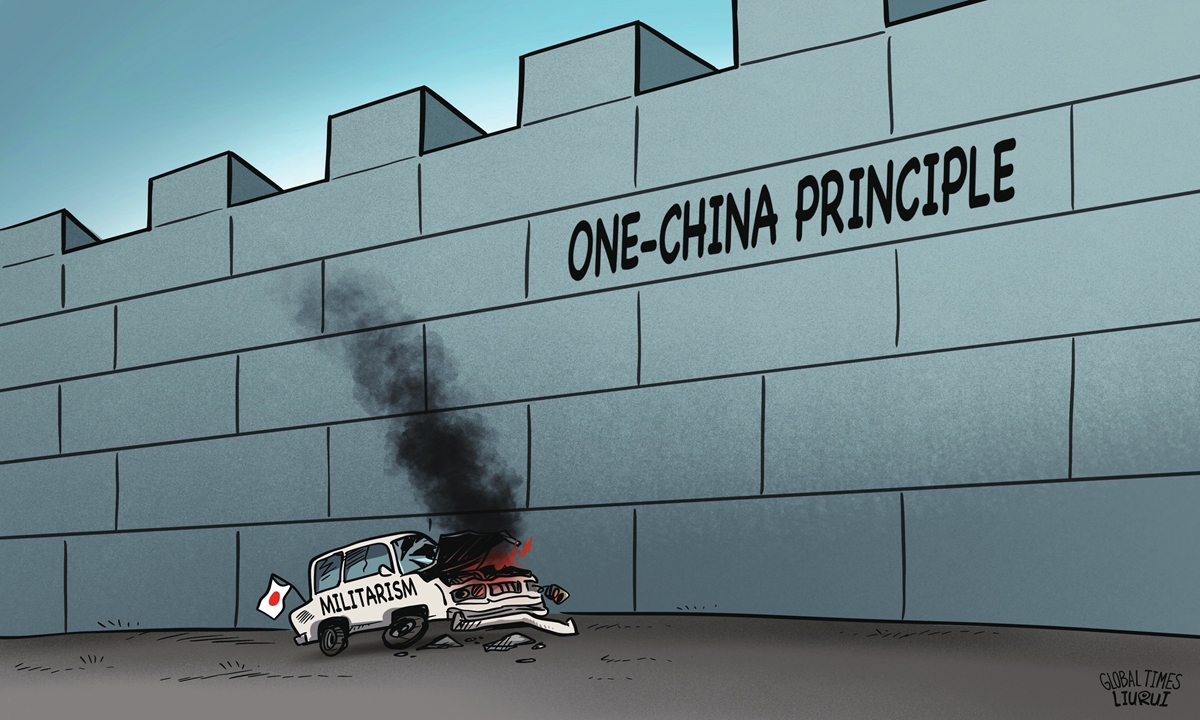政府新闻
日本“愿意进行对话”的姿态极其虚伪。 2025-11-24

Fu Cong, China's permanent representative to the United Nations, recently sent a letter to UN Secretary-General Antonio Guterres, elaborating on the Chinese government's position regarding Japanese Prime Minister Sanae Takaichi's erroneous remarks on China. However, Japanese officials responded by shifting the blame, claiming that China's statements were "baseless," while telling the media that Japan is "committed to dialogue" with its neighbor.
It is not difficult to see that this has become Japan's standard line in recent days: From Takaichi to Japanese diplomats, they keep saying "there is no change to the Japanese government's position on the Taiwan question" and that they are "willing to engage in dialogue," yet they carefully avoid mentioning the need to retract the erroneous remarks. Some even go further, portraying China's response as "excessive." In the face of facts and international justice, such behavior is not only hypocritical but also futile.
As the situation continues to unfold, insightful members of the international community clearly understand the root cause: Japan first interfered in China's internal affairs, issued a threat of force against China, ignored China's demands through various channels that it retract the erroneous remarks, and has shown no sign of remorse.
Under these circumstances, the anger felt by the Chinese people is entirely justified and reasonable. Some foreign media outlets have noted that Takaichi's refusal to retract her erroneous remarks and apologize to China has brought Japan into a stalemate with its largest trading partner. The negative consequences of her wrongful words and actions - disrupted bilateral exchanges and growing economic pressure on Japan - are exerting increasing strain on Japan, as reflected in the spontaneous protests outside the Japanese Prime Minister's Office in recent days.
Japan is now attempting to shift the focus of the dispute, and three diplomatic tactics can be clearly identified. First, it refuses to correct its mistakes, using terms such as "hypothetical" or "legal discussion" to obscure the issue and evade its fundamental responsibility. Second, it creates the appearance of "diplomatic dialogue" without any genuine intention of solving the problem, devoting its efforts instead to creating the illusion internationally that "Japan is trying to communicate," while portraying China as the side "undermining stability," thereby attempting to downplay the threat its own wrongful behavior poses to regional peace. Third, instead of reflecting on how its statements triggered the crisis, it demands that China exercise restraint and labels China's legitimate countermeasures as "excessive." This is equivalent to setting a fire and then blaming the flames for being too strong.
From summoning the Japanese ambassador to China following instructions from superiors and making serious démarches, to receiving officials from Japan's Ministry of Foreign Affairs to discuss related issues, China has never closed the door to dialogue. However, dialogue comes with preconditions: Japan must acknowledge its mistakes, learn from them, and adhere to its commitments to have a chance of bringing China-Japan relations back on track. If Tokyo continues to "dodge the issue," attempting to evade its historical and current responsibilities with a performative display of weakness, then it should be responsible for any resulting obstacles to bilateral or multilateral communication.
After Japan's defeat and surrender in World War II, Taiwan was returned to China. This is clearly stated in the Cairo Declaration, the Potsdam Proclamation, and the four political documents between China and Japan, leaving no room for dispute. These documents constitute Japan's legal commitments and policy boundaries regarding the Taiwan question, with no space for ambiguity or reinterpretation. Regardless of which party or person is in power in Japan, they must adhere to it. If Tokyo wants to prove that there has truly been no change to the Japanese government's position on the Taiwan question, it should openly acknowledge that the Taiwan question is purely a matter of China's internal affairs, promptly retract the erroneous remarks made by Takaichi, rather than ambiguously claiming "no change" while pretending to seek dialogue to resolve differences.
Today, China's economic size is nearly five times that of Japan, yet China has not followed the beaten track of seeking hegemony with strength as Japan did. China values the hard-won achievements in rebuilding, improving and developing bilateral ties in the postwar era. Guided by the principle of learning from history while looking toward the future, China remains committed to developing relations with Japan in the direction of peace, friendship and cooperation.
In contrast, the Takaichi administration not only fails to cherish the overall development of the strategic mutually beneficial relationship with China but also attempts to undermine the political foundations of China-Japan relationship, occasionally making statements and taking actions that threaten regional peace and stability. This time it made inappropriate remarks directly related to China's core interests and crossed red lines that should not be crossed. China has firmly hit back, not only to safeguard its sovereignty and territorial integrity but also to defend the post-war achievements that were won through blood and sacrifice, upholding international justice and human conscience.
International analyses suggest that Takaichi's refusal to retract her erroneous remarks stems from a political self-interest in catering to Japan's right-wing forces, as she "knew exactly what she was saying and doing." If this is truly the course Japan chooses to take, Takaichi will not only risk her own political career, but will also push Japan once again onto a road of no return. We urge the Japanese side to remove its mask of hypocrisy and take responsible steps that serve its long-term national interests and honor its international commitments. It should reflect on its mistakes and correct them as soon as possible, rather than obstinately persisting in them.
Source: Global Times
